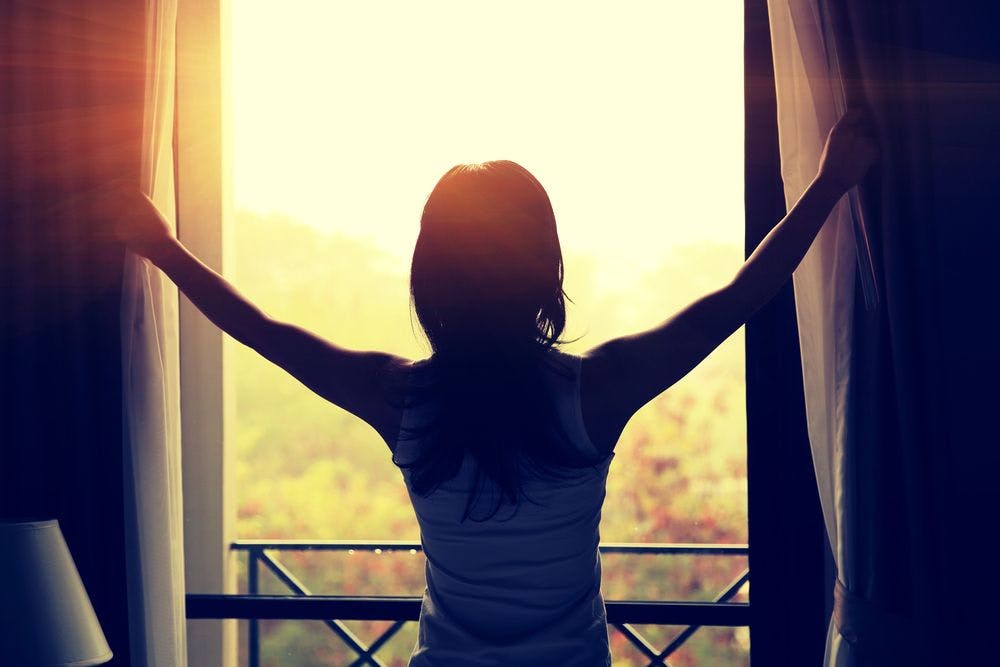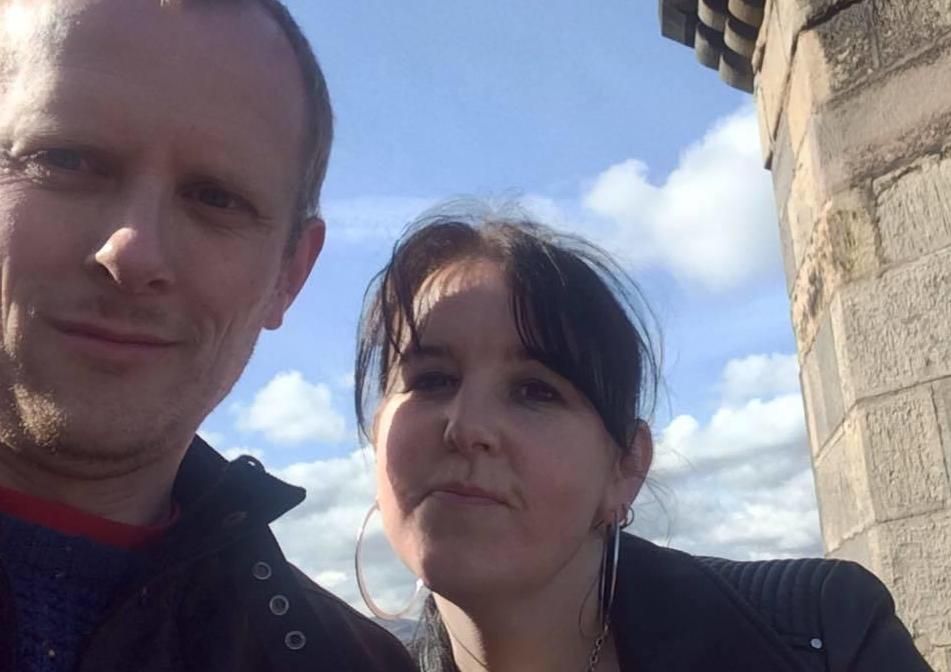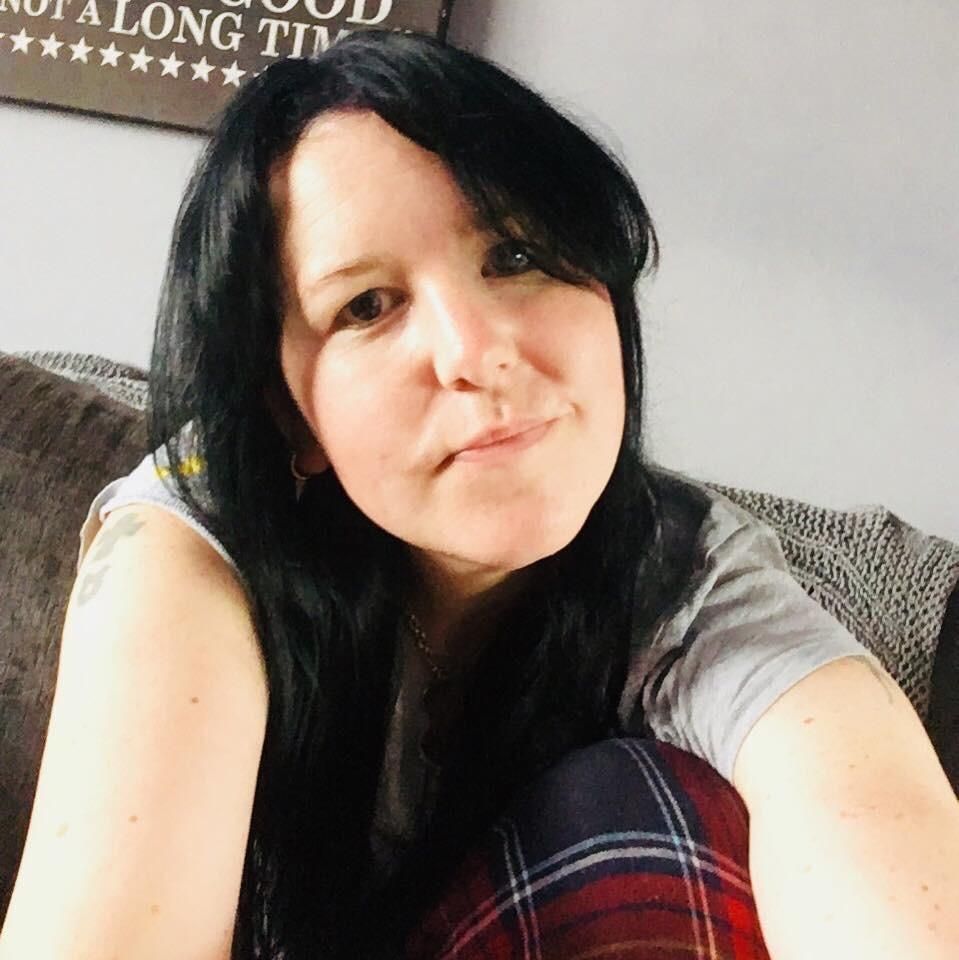The light after the darkness: Victoria's story
updated on Sep 3, 2021

Victoria struggled with self-harm and an eating disorder for years. But with the help of a strong support system, she learned to live alongside her depression, and a new hobby ignited a sense of hope for the future
Content warning: this piece include details of self-harm
I will never forget the very first time I self-harmed. I was 13, and I needed an outlet, a way to set the torment in my mind free. Somewhere in the darkest part of my mind, it made sense that allowing the blood to flow would make me feel better – and it did, but as I stared at the droplets of blood, I felt trapped, as though I had just created a prison for myself.
In some ways, the self-harm had a voice. It was comforting because it seemed to understand, but it fed off the lies the depression told me, and I felt overwhelmingly worthless.
My mind filled with questions of: ‘Who am I?’, ‘Why am I alive’, ‘Why would anyone love me?’ I struggled for years. Self-harming became the coping mechanism that got me through the days. It was controlled, and I felt it was the one thing I had power over.
In 2003, I decided that my body image was the reason I was depressed, the reason my life was going nowhere. I had just turned 21, and I thought that if I could look amazing, then I would be a success, and then I would be happy.
It started off as healthy changes – good, fresh food and exercise. The number on the scales went down – it was an amazing feeling – and, in my head, the bigger the loss the greater the good feeling, so I went a day or two without eating and pushed myself harder.
Initially, I saw changes in the mirror and I was feeling good, but then my view changed. No matter how low the scales went, no matter how little I ate, I was repulsed by my own reflection. When I started hiding food, pretending I’d eaten it, and struggled to even take a bite of an apple, I realised it had become something far more sinister. I wasn’t in control anymore; the darkness had introduced me to a new ally, but it wasn’t my friend.

Victoria’s husband has been her rock
I was miserable, but then the world gave me a lifeline. It was 2004, and I found love and acceptance. It wasn’t an easy road; I refused to need someone, but somehow, no matter how hard I pushed him away, he pushed back, harder. Little by little, he broke down my walls, and as each piece was dismantled I found myself again. The insecurities fell away, and he gave me my fight back. It wasn’t anything he did, he was just there loving me for me, making me feel beautiful. It was the support, having a rock I could lean on, someone who would catch me if I fell while telling me I could fly.
Two years later, we got married. It was a day of pure happiness. The darkness was nowhere to be found and, as we walked hand in hand, I knew we would never let each other go.
Now, 14 years later, we are still as happy as we ever were, and have a family of our own. Life is in a very different place now. It’s not always buttercups and daisies, but I am in control of my demons. They are in the darkest corners of my mind, I am aware of them, and occasionally they make their presence felt; the darkness still lingers like an uninvited guest.
After all these years, though I know myself better now, I accept that when the darkness is present, and my world feels flat, it isn’t always linked to anything in particular, it just exists. I now focus my energy on something positive, I think about things I may want in life, or dreams I can fulfil – and although I acknowledge the depression, it no longer consumes me. My pain becomes constructive rather than destructive.
Last year, I needed to find myself again. It’s easy in life, especially when you have children, to feel a little lost. My youngest was starting school and I was feeling redundant. I decided I’d do something for myself, so I started writing, letting my imagination run away, creating characters, and escaping into other worlds. Then I happened across a blog post asking for submissions for a new book series called Hometown Tales. I filled pages with childhood adventures, but then I hit a point in my life where the joy of nostalgia disappeared. I could choose to continue on a different track or I could write my truth on the page. I did just that, I laid my life bare and it felt good; I never dreamed it would be accepted for publication so I just wrote it for me. It was honest and raw.

My tale was accepted, and as the realisation hit that my darkest secrets would be out there in the world, I was terrified of the judgements. But writing my truth gave me a newfound strength, and as the editing process went along, I finally felt free. I realised how dark my life once was, and how much light I now had. I began to see who I was, and that the battles I had faced had made me stronger. I felt unashamed; I was a survivor.
Writing the book changed my life, it took my nightmares and changed them into dreams: the dream of having my name on the cover of a book, the dream of being free, the dream of finding out who I am.
I remembered how alone I had felt, that feeling of isolation when the world appeared to be bobbing along perfectly, yet I was falling apart. I wanted to stand tall and shout from the rooftops that life can get better. I wish I had a magic wand and all the answers, but I don’t, although I do know talking helps.
I held my secret all my life; I thought keeping it to myself was strength, but speaking out made me stronger. I don’t deny my feelings now, I acknowledge them rather than trying to lock them away.
Life might sometimes appear perfect, but I do still struggle. I have many things I’m grateful for, things to be overjoyed about, and I’m lucky to have my husband and children by my side – they are my light in the dark, and now my husband holds the umbrella while I dance in the rain.
Graeme Orr | MBACP (Accred) counsellor says:
Growing up, Victoria struggled with her self-image, and with questions around her identity and self-acceptance. Self-harming and an eating disorder became a way to cope, even when she realised the harm these unhealthy outlets were causing her.
A turning point came when Victoria met her husband, who offered the time, support, and love she needed to recover and cope. The negativity didn’t disappear completely, but an opportunity to write about it helped, and offered hope to others. As Victoria notes, often speaking out about our fears and anxieties to a friend or confidant can make us stronger.
To connect with a counsellor to discuss self-harm, or feelings of low mood and depression, visit counselling-directory.org.uk

